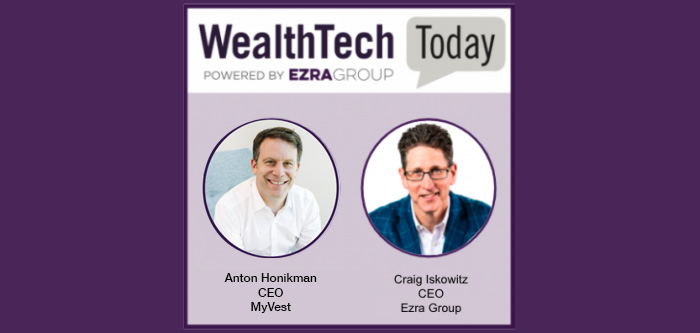Lean In. Learn More. Measure Differently.
By Shana Bruner, Director of Product Marketing
What keeps wealth management clients awake at night? Chances are it’s not whether their portfolios are beating the S&P 500. The traditional focus on benchmark-relative performance obfuscates an advisor’s more important responsibility to help clients achieve their life goals.
At MyVest, we’ve been thinking about the challenges of traditional performance reporting for a long time. We previously published a commentary on the topic The QPR is dead: The end of the quarter is just another day. Forward-thinking advisors and firm leaders have recognized the issues and limitations of this approach, yet old habits die hard. Is there a better way?
Our view is yes. It’s a goals-based approach to client engagement (note: not just client reporting). Performance is only part of the discussion and should be increasingly marginalized.
MyVest recently convened a Roundtable of wealth management executives, who made it clear that future-thinking firms are moving past the traditional QPR. However, this transition to a modern engagement framework is still evolving. We identified three ways in which wealth management firms are shifting their approach to client engagement:
- Lean In, Go Deeper, Learn More — The Roundtable consensus was that wealth managers who embrace a goals-based approach develop much deeper client relationships. The ideal approach includes a discussion of non-investment considerations, such as a client’s life goals, values and purpose, interests, and reasons for investing that nurtures the relationship and fortifies trust. These considerations evolve over time and demand revisiting as circumstances change.
- Develop and Deliver a Broader Solution — Clients value their trusted advisors’ assistance in securing good outcomes along a spectrum of personal goals and challenges. To this end, many advisors provide services that complement investment management, including budgeting, debt management, insurance planning, tax preparation, college funding, estate planning, selling a business, or managing the consequences of a divorce or job loss. Further, some firms have established a tracker to monitor collaboration between the client and advisor on follow-up tasks and results. They have found that this encourages action and transparency. The truly future-forward firms are investing in data and analytics to render actionable advice (next best actions) across the broader spectrum of personal goals.
- The Evolving Need to Measure Differently — Wealth management firms are increasingly looking for new ways to address evolving client expectations. This necessitates the development of measures to reflect the broader value of their services. A few creative ideas being pursued include:
- ESG impact reporting: how does the client’s investment strategy stack up in terms of carbon footprint, water consumption, or acres of forest saved?
- Diversity reporting: how does the client’s investment strategy promote racial or gender equality at boards, leadership, and associate levels?
- Tax impact reporting: how has the client’s investment strategy reduced the client’s tax burden? How effective was a tax-aware transition in reducing the tax impact of moving to a new investment strategy?
- One Roundtable executive shared a new qualitative “measure” they track – when a client shows an emotional response or if a client says, “I never thought of that.” It’s a sign that the advisor has added value and deepened the relationship.
A 2020 Cerulli study, U.S. Retail Investor Advice Relationships 2020, further supports the reappraisal of the advisor-client relationship. “Clients report high satisfaction in their relationships based on transparency, honesty, and dependability of their advisors,” the study notes. “By keeping clients abreast of market developments, while also lending a crucial empathetic ear, advisors reinforce their importance to clients and the value inherent in personalized advice relationships.” As one of MyVest’s roundtable guests noted, “It’s the peace of mind that they [the clients] are working with a skilled professional and the comfort they get in the decisions they are making. In the end, they are paying for that personalized, customized attention.”
Clients are more likely to trust their advisors when they believe their holistic financial wellness needs are being met and the advisor is acting in their best interests. A new client engagement framework is evolving, and future-forward firms and advisors are implementing and adapting their service offerings accordingly. This evolution is necessary and will prove worth it.


![MyVest Byline: The Evolution of the UMA from 1.0 to 3.0 [Wealth Management]](https://myvest.com/wp-content/uploads/wealth-management-logo.webp)

![MyVest CEO Sees a Tech-Enabled Future Rapidly Approaching [PlanAdviser]](https://myvest.com/wp-content/uploads/PlanAdvisor-Anton-interview-May-2021.jpg)
![We Can Do Better: Making Financial Wellness a Workplace Imperative [BenefitsPRO]](https://myvest.com/wp-content/uploads/MyVest-FacetWealth-financial-wellness.jpg)
